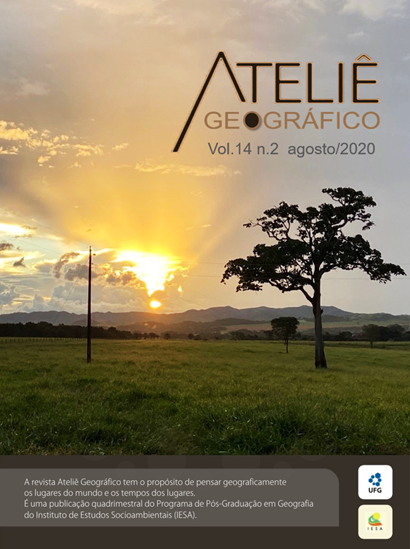Alphabetize literacy: Possibilities for porous cartography
DOI:
https://doi.org/10.5216/ag.v14i2.58950Abstract
This article aims to contribute to the debate about the meaning of the significant school cartography that sometimes is fixed in the defense of the literacy process, sometimes in the literacy, as if these were incommunicable and totalizing processes. Assuming the foundations of the discourse theory, our proposition here is articulation instead of the dichotomization of these concepts, defending the sense of alphabetizing literacy. This proposal starts with the perception that the literacy process goes beyond, and not against the understanding of alphabetization. In the dominant literature, cartographic literacy is known as a specific and indispensable process, which requires a methodological and didactic-pedagogical work to teach the logic of the map Cartesian system, whereas literacy would be linked to the domain and social use of cartographic languages. Here we advocate a pedagogical action from the perspective of alphabetizing literacy, which changes the usual emphasis of spatial localization as the center of the process. Moreover, it creates conditions for porous cartography that allows students to take appropriate language Cartographic also as socio-spatial practices of signification.
Keywords: School cartography; alphabetizing literacy; language cartographic; socio-spatial practices of signification
Downloads
Downloads
Published
How to Cite
Issue
Section
License
Autores que publicam nesta revista concordam com os seguintes termos:- Autores mantém os direitos autorais e concedem à revista o direito de primeira publicação, com o trabalho simultaneamente licenciado sob a Licença Creative Commons Attribution que permite o compartilhamento do trabalho com reconhecimento da autoria e publicação inicial nesta revista.
- Os autores não serão remunerados pela publicação de trabalhos na Revista Ateliê Geográfico. Além disso, os conteúdos publicados são de inteira e exclusiva responsabilidade de seus autores, ainda que reservado aos editores o direito de proceder a ajustes textuais e de adequação às normas da publicação.
- Autores têm permissão e são estimulados a divulgar seu trabalho online (ex.: em repositórios institucionais ou na sua página pessoal), já que isso pode gerar alterações produtivas, bem como aumentar o impacto e a citação do trabalho publicado (Veja O Efeito do Acesso Livre).


